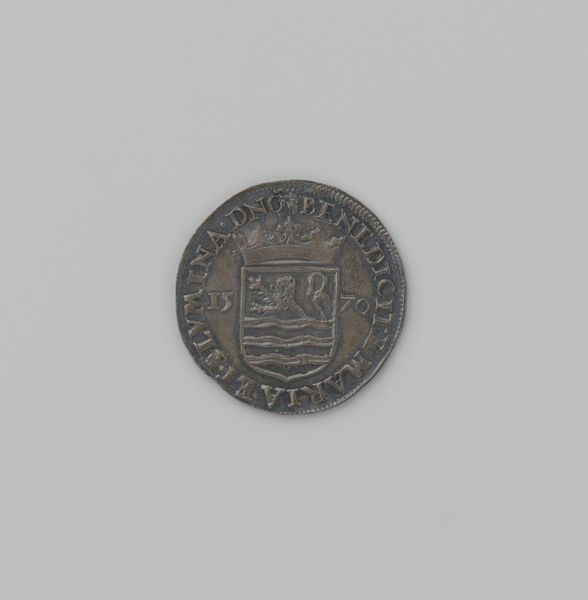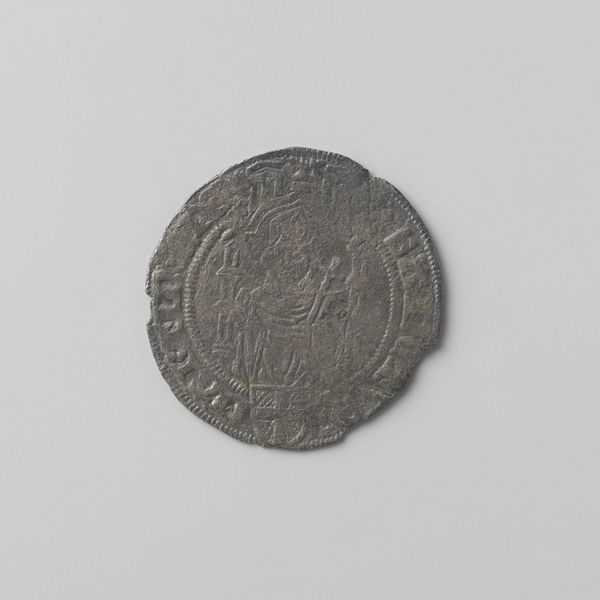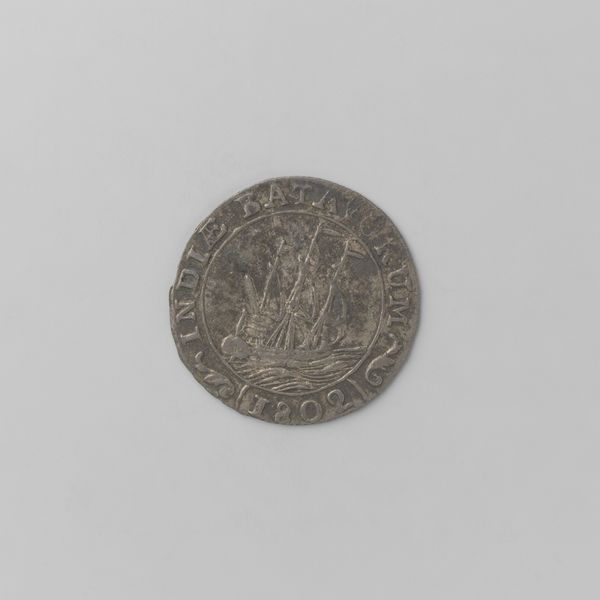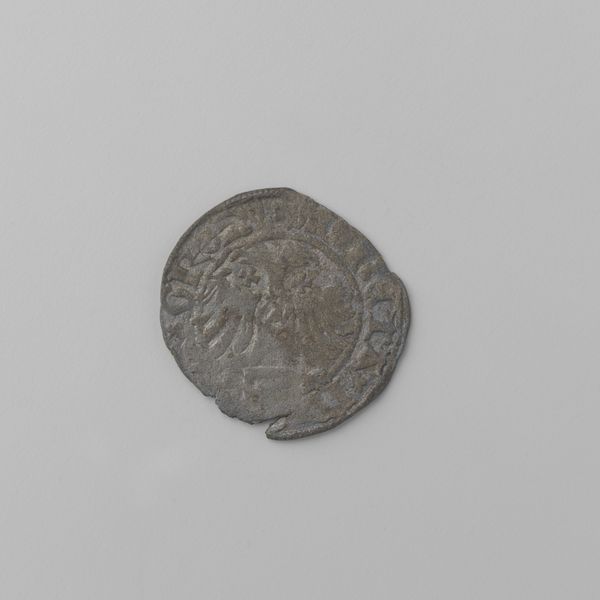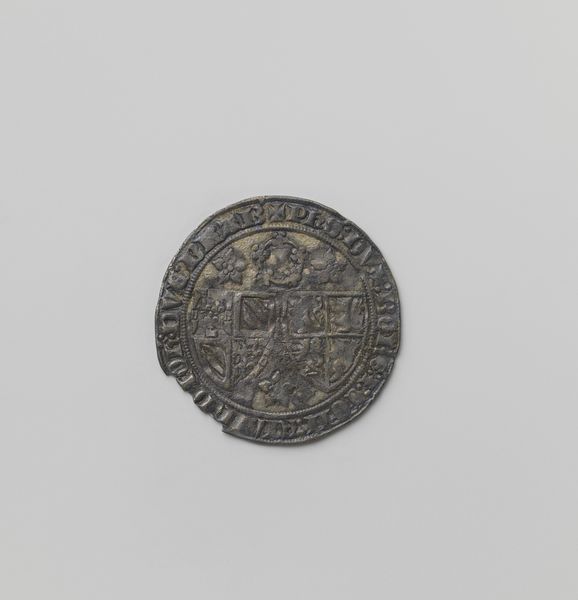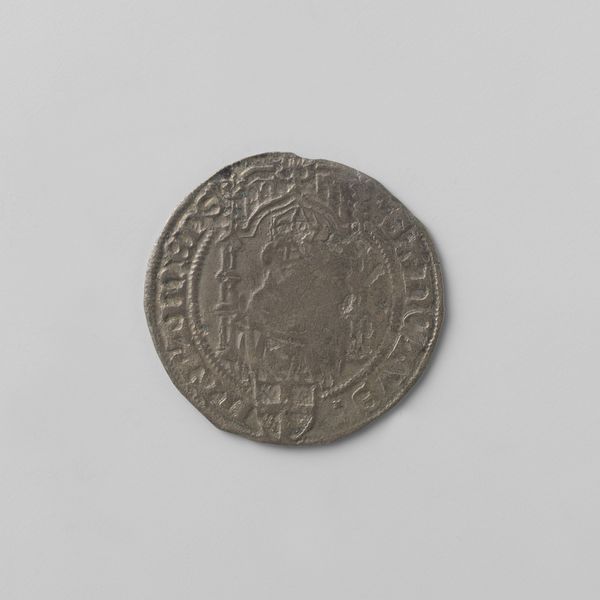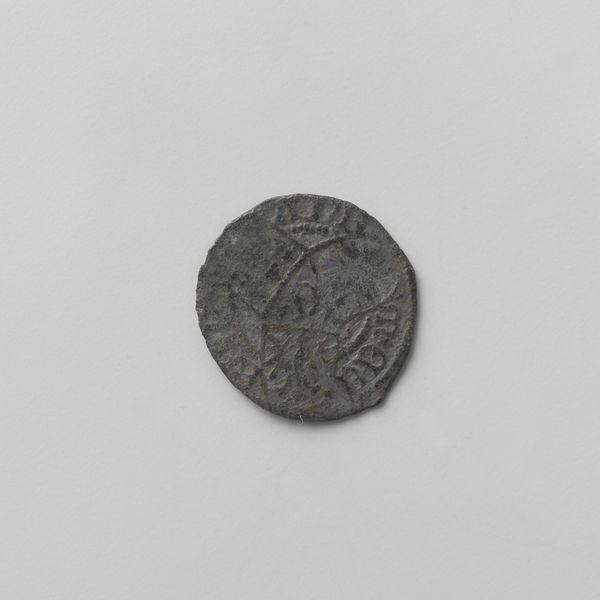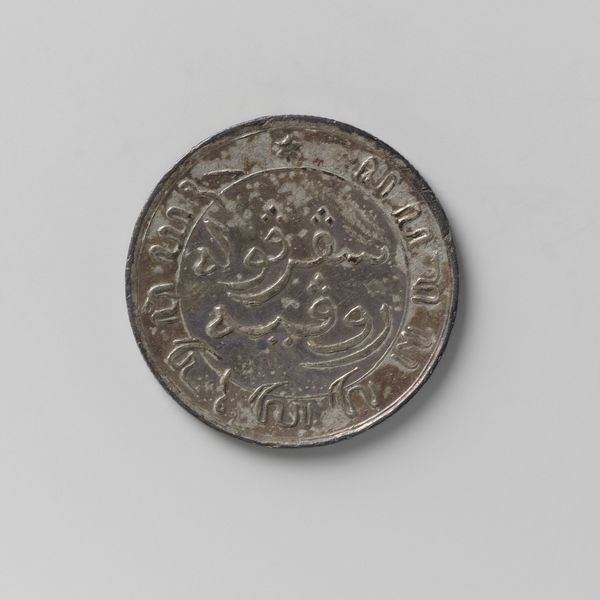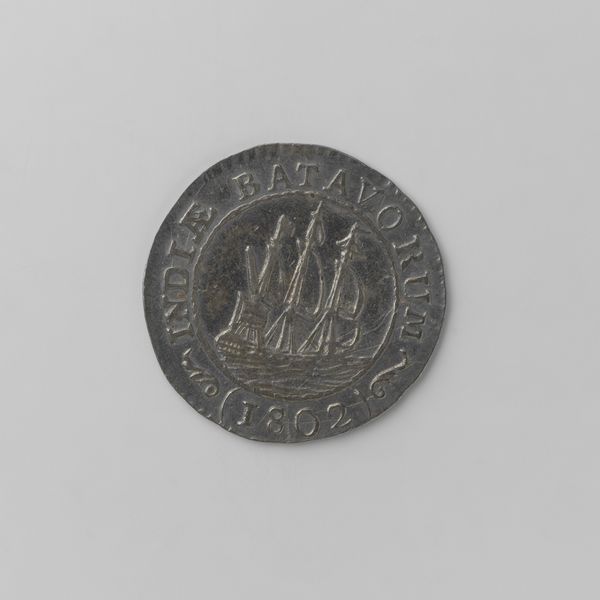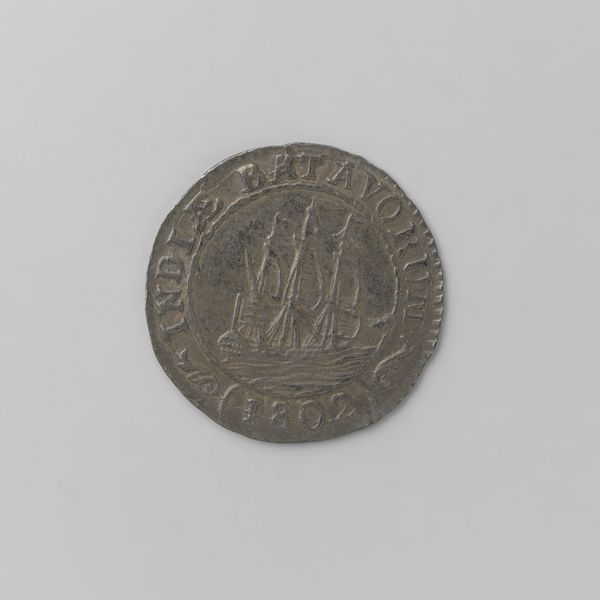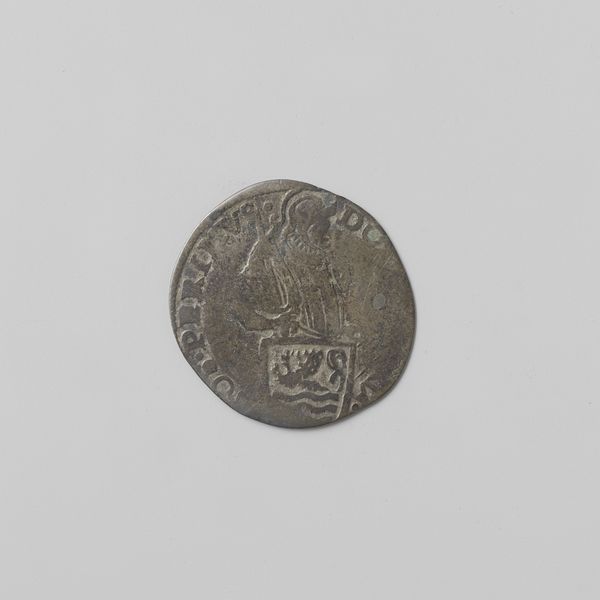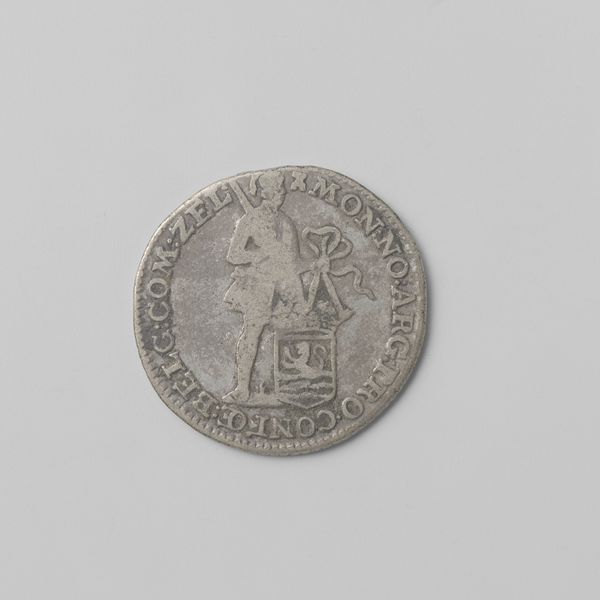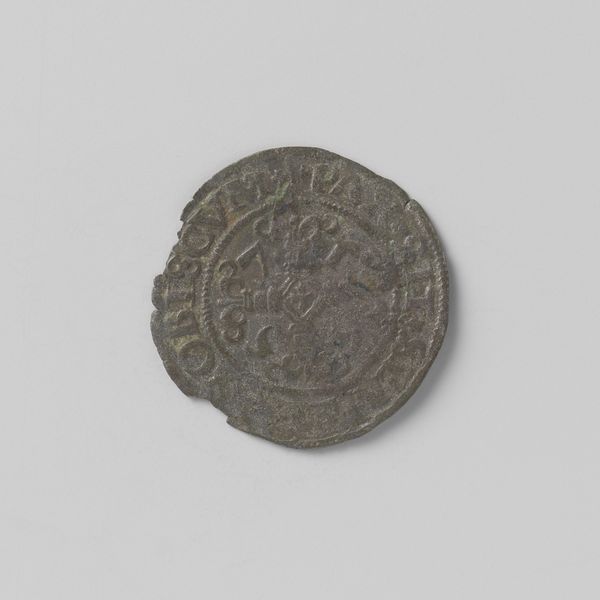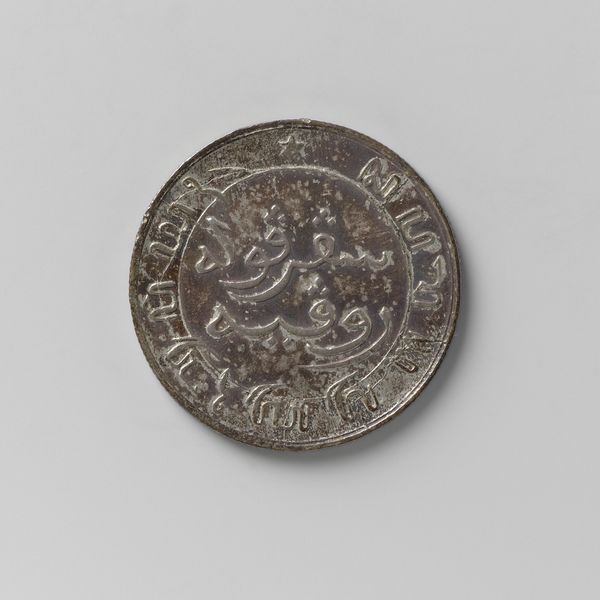
drawing, print, metal, engraving
#
drawing
#
medieval
# print
#
metal
#
figuration
#
engraving
Dimensions: diameter 2.3 cm, weight 0.92 gr
Copyright: Rijks Museum: Open Domain
This is a silver "Utrechtse groot," made between 1433 and 1455 under Rudolf van Diepholt, Bishop of Utrecht. It is a material expression of political power, a potent symbol within the economic and social fabric of the medieval Netherlands. The image on the coin, likely an eagle, isn't just a decorative element. It's a visual code, a cultural reference to imperial authority. The Holy Roman Empire's influence was strong in Utrecht at the time. The very act of minting coins was a statement about sovereignty, about who controlled the flow of wealth and, by extension, power. Understanding this coin requires us to delve into the history of the Bishopric of Utrecht, its relationship to the Empire, and the economic conditions of the time. Numismatic studies, archival records, and social histories can all shed light on its meaning. It shows how art, even in the form of currency, is deeply embedded in its specific social and institutional context.
Comments
No comments
Be the first to comment and join the conversation on the ultimate creative platform.
